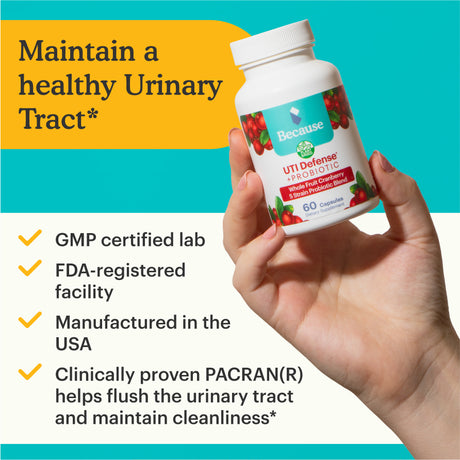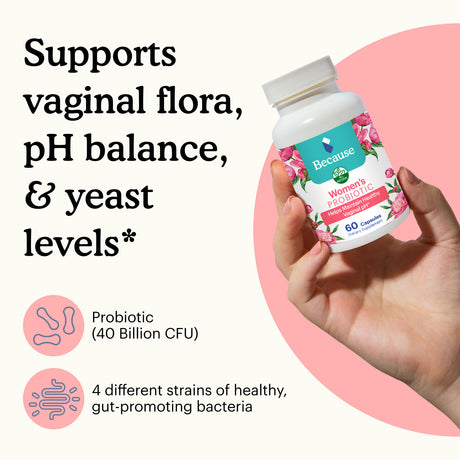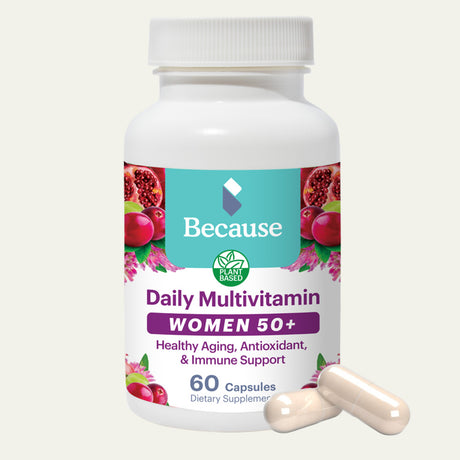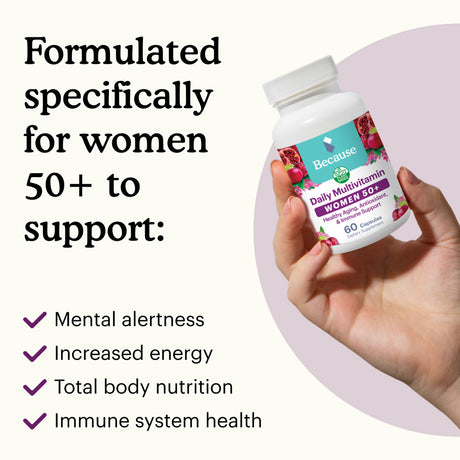A diet rich in whole grains, lean proteins, leafy greens, and other fruits and vegetables is the recommended way of getting the balance of nutrients that are essential for good health. However, keeping up a balanced and healthy diet can become difficult as we get older. Whether it’s because of a lower appetite, difficulty chewing and swallowing, or health problems that make digestion difficult, aging can get in the way of eating the foods that keep us active, happy, and healthy.
With some extra planning and supplemental nutrition, however, there’s no need to let aging stand in the way of good nutrition.
How is nutrition different for older adults?
As we age, our metabolisms slow down and we often become less active than before. Because of these changes, older adults typically don’t need as many calories as before. Our appetites usually shrink, too, since we need less fuel to keep our bodies moving.
Although older adults might eat fewer calories, we still need the same level of nutrition as we did when we were younger. So, those calories we do consume need to be packed with the proteins, carbohydrates, fats, and vitamins and minerals our bodies need to thrive. In nutrition terms, those calories should be ‘nutrient dense’: with vitamin D and calcium for bone health, vitamin B-12 for brain function, and a whole range of other vitamins and minerals keep our organs and immune systems healthy.
Older adults don’t usually need more of any particular vitamin or mineral; instead, as we eat less we simply get fewer of the vitamins and minerals we need through our everyday diet. In addition, the effects of missing out on essential nutrition become more and more obvious as we get older because our bodies repair more slowly. A poor diet in older adults can result in fatigue, brittle hair and skin, difficulty recovering from injuries or illness, depression and difficulty focusing, and other symptoms of malnutrition.
To stay healthy, we should make sure to eat plenty of nutrient-dense foods, like:
- Healthy proteins (plant-based protein like beans and soy, or eggs and lean animal proteins like fish and chicken)
- Leafy greens and colorful vegetables
- Fruit
- Oils (instead of animal fats)
- Whole grains (like whole grain pasta, lentils, quinoa, and other whole-grain products)
Eating whole foods is a great source of nutrition, since all of these foods are very nutrient-dense but as we age it can become difficult, for many reasons, to get all of our meals this way.
Challenges to getting good nutrition and tips for older eaters
Challenges
Aging often leads to a lowered appetite and less ability to eat the foods we used to love. Older adults may have difficulty chewing and swallowing thanks to dentures, painful teeth, general fatigue, or dysphagia. We also have a lowered sense of taste and smell, which makes food less appetizing. Along with other medical problems that crop up as we age, it can become daunting to finish a whole plate full of broccoli and chicken or other whole foods that require effort to chew and digest.
Our bodies also slow down as we get older, which makes digestion more difficult. Foods we once ate without difficulty can be hard to stomach, and sometimes we can’t get as much nutrition from whole foods as we would if those foods were turned into an easily digestible form first.
Tips for older adults
If you have difficulty eating, you can make vegetables easier to chew by preparing vegetable purees rather than raw or baked veggies. Pureed soups, like lentil or split pea, can also be a great source of protein and hydration. If you eat meat, you can try eating ground or shredded meat instead of a whole cutlet.
You can also puree fruits, vegetables and protein sources like milk or nuts into smoothies, which can provide all of the nutritional benefits of a full meal in an easy-to-consume form. However, if your mobility is limited and it’s difficult to work around a kitchen, or if consuming an entire smoothie to get the nutrition you need sounds difficult or unappealing, you might want to try a meal replacement drink.
How meal replacements can help
Meal replacements provide the calories and nutrients you would normally get from whole foods, and usually come in appetizing flavors like chocolate or vanilla. Most meal replacements come in a bar or liquid form, or in a powder that you can mix into the liquid of your choice. Liquid meal replacements, like nutritional shakes, are usually easier to eat and to digest.
Some people use meal replacements as a supplement to their daily routine, and some people use them as a complete replacement for solid food on days when eating is too difficult. Meal replacements are formulated to ensure you get the right nutrition without the hassle of preparing a meal yourself. They might also be the only option for people with difficulty chewing or swallowing whole foods.
Most meal replacements are made with a specific purpose in mind. Some are made for people with health conditions and can be prescribed by your doctor. Some are made to help people gain weight or build muscle mass. Others are made to ensure overall nutrition, especially in older adults who struggle with eating enough to meet their nutritional requirements.
Kate Farms
Because Market has partnered with Kate Farms to provide high-quality nutritional shakes that pack the benefits of a plant-based diet into an easy-to-consume liquid shake. Unlike other nutritional shakes on the market, Kate Farms shakes are fully vegan, low-allergen, and don’t rely on corn syrup or artificial sweeteners for their great taste.
If you struggle with your appetite or with eating whole foods, Kate Farms can help you get the calories and the nutrition you need in an appetizing and convenient way. Their nutritional shakes are filled with All Good Things™, like 16g of easily digested USDA Organic, non-GMO, plant-based pea protein, and phytonutrients from leafy greens like kale and broccoli. Their shakes come in three tasty flavors: chocolate, vanilla, and coffee, each made with real, organic ingredients, not artificial flavors. Kate Farms doesn’t use filler ingredients, making every calorie count. At 330 calories, each shake could be a meal replacement or it could be used to supplement your nutrition throughout the day. They are delicious on their own, but could also be blended into a smoothie to get even more nutrition in your glass.
Kate Farms shakes are also easy to digest. They’re made without common allergens like milk, eggs, fish, shellfish, tree nuts, peanuts, wheat, soybeans, or corn, making them accessible to a wide range of customers. And they skip the artificial sweeteners, which often cause indigestion. Instead, they use organic brown rice syrup and agave syrup to give you the taste you want without worrying about your stomach.
We started Because Market to make aging less stressful for older adults and their caregivers. We care about your quality of life, and want to make it convenient for you to get what you need to live your life. Kate Farms nutrition shakes make good nutrition simple and stress-free, and can help you and your caregivers feel reassured that you’re getting healthy calories without any unnecessary or hard-to-digest ingredients.
Conclusion
Aging can create challenges for your appetite and your ability to eat the whole-foods diet commonly recommended by experts. When age-related changes make eating difficult, quality meal-replacement shakes can supplement your nutritional needs and provide many of the same benefits of a well-rounded diet in a more convenient, digestible format. Because Market works with Kate Farms to provide essential nutrition for aging adults. Their shakes provide all the goodness of a plant-based diet without the fillers or allergens of other meal replacement shakes. Because getting good nutrition should be as simple and stress-free as everything else we offer on our marketplace.
To shop Kate Farms and other dietary supplements for older adults, you can visit our supplements collection on our website.














